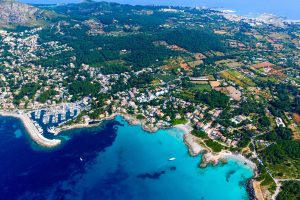Understanding the Legal Drinking Age in Spain
Understanding the legal drinking age is crucial for both residents and tourists to ensure compliance with local laws and to enjoy a responsible drinking experience. In Spain, where vibrant social traditions and a rich culinary culture intertwine, this knowledge becomes particularly relevant.
Spain is renowned for its lively social scene, which often centers around its culinary delights. One of the most cherished aspects of Spanish culture is the tradition of tapas—small, flavorful dishes served with drinks that encourage socializing and conversation. Alongside tapas, soft drinks play a significant role in Spanish dining, offering refreshing alternatives to alcoholic beverages and complementing the diverse flavors of Spanish cuisine.
In particular, Barcelona, as a major cultural and tourist hub, reflects these traditions. The city’s lively bars and restaurants are an integral part of its social fabric, where understanding the legal drinking age—set at 18 years old—is essential for both locals and visitors.
For tourists, being aware of the drinking age helps in navigating local customs and ensures an enjoyable experience without any legal complications. This article explores the legal drinking age in Spain, with a focus on Barcelona, and highlights how it intersects with Spain’s vibrant culture of tapas and its diverse soft drink options.
Contents
Legal Drinking Age in Spain
In Spain, the legal drinking age is set at 18 years old. This regulation applies uniformly across the country, ensuring that individuals must be of legal age to purchase and consume alcoholic beverages in public places. This standard age is enforced in all types of establishments, including bars, restaurants, and clubs, as well as for the purchase of alcohol in supermarkets and liquor stores.
The regulation of the legal drinking age in Spain is grounded in national legislation designed to promote public health and safety. The legal framework governing alcohol consumption is primarily outlined in the Ley 11/2015, which establishes the minimum age for buying and consuming alcohol. This law aims to prevent underage drinking, which can lead to a range of social and health issues, including alcohol dependence and risky behavior.
The decision to set the drinking age at 18 reflects a balance between allowing young adults to enjoy responsible social activities and addressing concerns about the potential negative effects of alcohol consumption. At 18, individuals are generally considered mature enough to make informed decisions regarding their drinking habits while still under the supervision of parental guidance and societal norms.
In addition to national regulations, regional authorities may implement specific rules or conduct additional checks to enforce the drinking age. These measures help ensure that bars and other alcohol-serving establishments adhere to the legal standards, maintaining a controlled and safe drinking environment for everyone.
Overall, Spain’s legal drinking age is designed to foster a responsible drinking culture while protecting the health and well-being of its younger population. This regulation is an integral part of Spain’s broader approach to alcohol consumption and public health.
Drinking Age in Barcelona, Spain
In Barcelona, as in the rest of Spain, the legal drinking age is 18 years old. This regulation is consistent across the entire country, including all major cities and regions. Therefore, whether you’re in Barcelona or elsewhere in Spain, individuals must be at least 18 to legally purchase and consume alcoholic beverages. This age requirement applies to all types of alcoholic drinks, including beer, wine, and spirits.
While the legal drinking age in Barcelona is the same as the rest of Spain, there may be specific local practices and enforcement measures that are relevant in the city. Barcelona, being a major tourist destination, has a vibrant nightlife with numerous bars, clubs, and restaurants. Due to the high influx of tourists, there is a particular emphasis on enforcing the legal drinking age to prevent underage drinking and ensure compliance with local laws.
Local authorities in Barcelona are known to conduct routine checks in bars and nightclubs to verify that patrons are of legal drinking age. Establishments are required to ask for identification from anyone who appears to be under 25 years old, in order to verify their age. This practice helps to curb illegal underage drinking and ensures that all visitors and locals adhere to the regulations.
Additionally, Barcelona’s enforcement practices are part of broader efforts to maintain public safety and promote responsible drinking. The city’s bustling social scene and diverse range of nightlife options mean that both locals and tourists are regularly reminded of the legal requirements. Bars and clubs, in particular, are vigilant about age verification to avoid penalties and maintain their reputation.
In summary, while the legal drinking age in Barcelona aligns with national standards, the city’s specific enforcement practices and heightened focus on compliance reflect its unique status as a major international tourism and nightlife hub.
Drinking Age in Madrid, Spain
In Madrid, the legal drinking age is 18 years old, consistent with the national standard across Spain. This regulation ensures that individuals must reach this age before they are legally allowed to purchase or consume alcoholic beverages in public spaces, including bars, restaurants, and nightclubs. This legal framework applies equally to all regions of Spain, including the capital city.
While Madrid follows the national drinking age law, the city’s unique characteristics influence its enforcement and local practices. As Spain’s capital and one of its largest cities, Madrid has a bustling social scene with numerous bars, clubs, and dining establishments that attract both locals and tourists. Consequently, there is a strong emphasis on adhering to the legal drinking age to ensure public safety and compliance.
In Madrid, local authorities actively enforce the drinking age through periodic inspections of establishments that serve alcohol. Bar and nightclub owners are required to check the identification of anyone who appears to be under 25 years old to confirm their age. This practice helps prevent underage drinking and maintains a controlled environment in the city’s vibrant nightlife.
Moreover, given Madrid’s status as a major international destination, the city’s enforcement of the drinking age also focuses on tourists. Visitors are advised to carry valid identification to avoid any issues when purchasing alcoholic drinks. Local regulations and enforcement practices are designed to support responsible drinking and prevent any legal complications for both residents and visitors.
In summary, the drinking age in Madrid adheres to the national standard of 18 years, with specific enforcement practices tailored to the city’s dynamic social landscape and international tourism. Ensuring compliance with these regulations helps maintain the safety and enjoyment of Madrid’s lively and diverse drinking scene.
Drinking Age in Málaga, Spain

In Málaga, the legal drinking age is 18 years old, in line with the national regulation across Spain. This means that individuals must be at least 18 to legally purchase and consume alcoholic beverages in public places, such as bars, restaurants, and nightclubs. This uniform legal standard ensures consistency throughout the country, including in Málaga, a popular city on the Costa del Sol.
While Málaga adheres to Spain’s national drinking age law, the city’s specific context influences how these regulations are enforced. Málaga, known for its lively social scene and attractive beachside location, has a vibrant nightlife and numerous dining venues where alcohol is served. This dynamic environment necessitates strict enforcement of the legal drinking age to ensure that both locals and tourists comply with the law.
Local authorities in Málaga actively monitor bars and other establishments to ensure compliance with the drinking age regulations. It is common for these venues to check identification for anyone who looks younger than 25 years old to verify their age. This helps prevent underage drinking and maintains a safe and legal drinking environment.
Additionally, Málaga’s role as a major tourist destination means that visitors should be aware of the local drinking age laws. Tourists are encouraged to carry appropriate identification when enjoying the city’s nightlife or dining out, to avoid any issues related to alcohol purchases.
In summary, Málaga enforces the same legal drinking age of 18 years as the rest of Spain. The city’s enforcement practices are designed to support a responsible drinking culture and ensure that both residents and tourists adhere to the regulations in its lively and popular social venues.
Drinking Age in Spain for Tourists

For tourists visiting Spain, the legal drinking age is 18 years old, just as it is for residents. This means that regardless of where they come from, tourists must be at least 18 to legally purchase and consume alcoholic beverages in public places, including bars, restaurants, and clubs. The age requirement applies uniformly across the country, from bustling cities like Madrid and Barcelona to popular coastal destinations such as Málaga and Valencia.
Understanding and adhering to local drinking age regulations is crucial for a trouble-free visit. While Spain is known for its welcoming and vibrant social atmosphere, failure to comply with the legal drinking age can result in fines or other legal issues. Additionally, many establishments are vigilant about enforcing this law, so it’s important for tourists to be aware of and follow these regulations.
Practical Advice: To ensure compliance with local drinking age laws, tourists should keep the following tips in mind:
- Carry Identification: Always bring a valid ID, such as a passport or a driving license, when visiting bars or restaurants. Spanish law requires establishments to check the age of anyone who appears under 25, so having proper identification readily available is essential.
- Be Aware of Local Customs: Familiarize yourself with local customs and regulations related to alcohol consumption. While the legal drinking age is consistent, some regions or venues may have specific practices regarding the enforcement of these laws.
- Respect Local Rules: Follow any additional rules set by individual establishments. Bars and clubs may have their own policies or stricter age verification procedures, so cooperating with staff and showing your ID when asked can help avoid any issues.
- Educate Yourself About Local Culture: Understanding Spanish drinking culture can also be beneficial. For example, tapas are often enjoyed alongside beverages, and local customs around drinking and dining can provide context for a more enjoyable experience.
By taking these steps, tourists can enjoy their time in Spain responsibly and ensure they remain in compliance with local laws. This approach not only helps avoid legal complications but also enhances the overall experience of exploring Spain’s rich cultural and social offerings.
Consequences of Underage Drinking
Legal Consequences
In Spain, underage drinking is taken seriously, and there are several legal repercussions for individuals caught consuming alcohol before reaching the age of 18. The primary legal consequences include fines and penalties. These fines can be imposed on both the underage individuals and the establishments serving them. For minors, consequences can also extend to having their alcohol confiscated and, in some cases, legal action may be taken against their guardians if they are found to be complicit. Additionally, repeated offenses can lead to more severe penalties, including community service or educational programs about the risks of alcohol consumption.
Enforcement
The enforcement of underage drinking laws in Spain is robust and varies by setting. In bars and nightclubs, staff are typically required to check the identification of anyone who appears to be under 25 years old. This practice helps ensure compliance with the legal drinking age and prevent underage consumption. Failure to comply with these regulations can result in significant fines for the establishments, which incentivizes strict adherence to the law.
In public places, such as parks or beaches, police officers conduct routine checks to deter and address illegal drinking. Authorities are proactive in enforcing these laws, especially in areas known for high foot traffic and popular social spots. The presence of law enforcement helps maintain a controlled environment and discourages underage drinking.
In summary, the legal consequences of underage drinking in Spain include fines, legal actions, and potential penalties for both individuals and establishments. The enforcement of these laws is strict, with rigorous checks in bars, nightclubs, and public areas to ensure compliance. Understanding and adhering to the legal drinking age is crucial for maintaining a safe and responsible drinking culture. By respecting these regulations, individuals can avoid legal issues and contribute to a healthier social environment.




